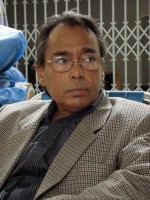Ek Cup Cha est un film Bangladais avec Ferdous Ahmed
Ek Cup Cha (2013)
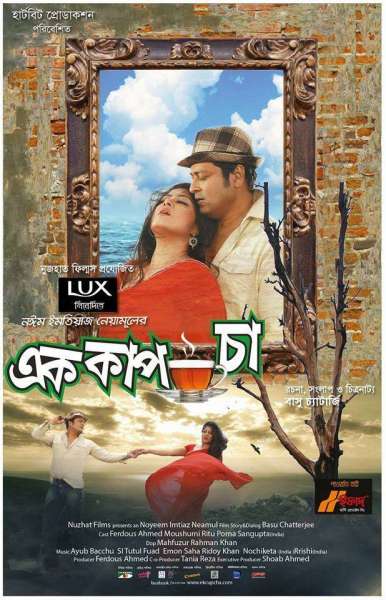
Si vous aimez ce film, faites-le savoir !
Ek Cup Cha (এক কাপ চা) is a Bangladeshi romantic film directed by Naim Imtiaz Niamul. The shooting of this film started on October 15, 2010. But for different circumstances regarding producers, it cannot be released. Finally, actor Ferdous Ahmed produced the film for the first time in his career and released on November 28, 2014. Ferdous Ahmed himself act in the central role of the film along with Moushumi, Mamnun Hasan Emon, Humayun Faridi and more. This was last film of Humayun Faridi. Bangladesh National Film Awards winning actor Alamgir and her daughter Akhi Alamgir is seen this film. After the success of the famous movie Bhat De, Alamgir and Akhi Alamgir, the father and daughter duo, worked in the project.
Acteurs
Commentaires
Postez un commentaire :
Suggestions de films similaires à Ek Cup Cha
Il y a 52 films ayant les mêmes acteurs, pour avoir au final 52 suggestions de films similaires.Si vous avez aimé Ek Cup Cha, vous aimerez sûrement les films similaires suivants :
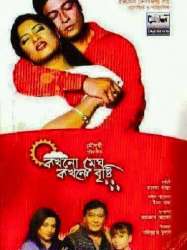
Kokhono Megh Kokhono Brishti (2003)
, 2h18Réalisé par Moushumi
Origine Bangladesh
Genres Romance
Acteurs Moushumi, Ferdous Ahmed, Abdur Razzak, Bobita, Humayun Faridi
Note69%






Tui Jodi Aamar Hoiti Re (2008)
Origine Bangladesh
Acteurs Shakib Khan, Ferdous Ahmed, Moushumi
Shakib Khan is a young landlord in an area. One day he saw Moushumi and fell love with her. But Moushumi loves a simple village man named Ferdous. Shakib Khan really desires Moshuimi. Moushumi tried to understand that he is junior to her and she loves another. But Shakib Khan is determined to get her.

Golapi Ekhon Bilatey (2010)
, 2h5Origine Bangladesh
Genres Musical
Thèmes Musique
Acteurs Mithun Chakraborty, Moushumi, Shabnur, Ferdous Ahmed
Note71%






Kusum Kusum Prem (2011)
Origine Bangladesh
Acteurs Moushumi, Ferdous Ahmed, Riaz, Amol Bose, ATM Shamsuzzaman
Note46%





Kusum Kusum Prem, portraying life of a destitute woman namely Kusum.

Aashiqui: True Love (2015)
Genres Musical, Romance
Acteurs Ankush Hazra, Nusrat Faria Mazhar, Rajatava Dutta, Moushumi
Note60%





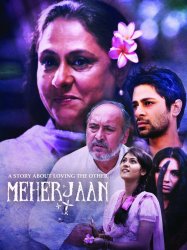
মেহেরজান (2011)
, 1h59Origine Bangladesh
Genres Drame, Historique
Acteurs Jaya Bachchan, Victor Banerjee, Humayun Faridi, Shaina Amin
Note33%





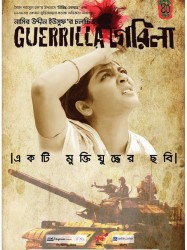
Guerrilla (2011)
, 2h20Origine Bangladesh
Genres Drame, Guerre, Historique
Acteurs Joya Ahsan, Ferdous Ahmed, Shampa Reza, Ahmed Rubel, ATM Shamsuzzaman
Note80%





On the ominous night of 25 March 1971, a heinous military operation, the Operation Searchlight an operation designed to kill indiscriminately the innocent democracy loving millions, was initiated by the Pakistan Army. The hated operation was just the beginning of the worst genocide to follow, a brutal crime against humanity after the Second World War. On that very night, Hasan Ahmed, a veteran journalist of the country, husband of Bilkis (Joya Ahsan), simply vanished while on his way to his newspaper office to perform his journalistic duty. He is untraceable till date. Bilkis was in banking profession. She started a desperate search for her husband and at the same time got herself engaged as a collaborator to the guerrilla operations which were gradually gaining momentum. She was not affected by her personal loss and pain, rather, undaunted; she chose the hazardous path to carry on the fight for our liberation. With the guerrilla fighters like Shahadat, Alam, Maya, Kazi Kamal, Fateh Ali and others operating in Dhaka, she started participating directly in many dangerous and successful operations. She was in constant touch with Altaf Mahmud, the legendary personality of Bengali Nation's musical arena and scorer of many revolutionary songs. She thus became the central character in the movie, also a target to the enemy. Bilkis, Shahin and many others got involved in the publication of a secret English News bulletin The GUERRILLA, obviously from the underground. Incidentally, at a particular point of time, Taslim Ali Sardar, a traditional Chieftain of the old Dhaka's subsector (Moholla), who courageously sheltered ill-fated Bilkis, got brutally killed by the Pakistani Army and their lackeys--- the hated rajakars. At one point, Altaf Mahmud, Rumi, Bodi along with some other freedom fighters were captured. Altaf and few others like him did never return, could never be traced, a tragic fact well known to us today. Bilkis, a lonely character now, could evade the worse, and tactfully leave the labyrinth- like barriers and traps set by the occupational army around Dhaka. She could get into a train to her home, Joleswari, a remote village at Rangpur. The metallic train transforms into a character, a symbolic one, a moving replica designed to depict a catastrophic journey. The parents of Bilkis were killed in the communal riots of the Bengalis and the Biharis in January '71 earlier.. She just was desperately longing to meet her own brother: Khokon at Joleawari. Khokon was then a commander of the local freedom fighters. Pakistan Army units were on the verge of collapse due to consistent fierce attacks initiated by those fighters. Khokon dynamited a vital railway bridge near Joleswari, interrupting all train movements. . She had to reach her brother. Nothing could deter her. She opted to walk. On her way, she got a young vibrant male companion, Siraj, a member of Khokon's fighting group. At one point Khokon was captured by the Pak Army. The brutal Army and Rajakar predators SLAUGHTERED him along with other captured freedom fighters. Bilkis wanted to have a glimpse of her dead brother, wanted to touch his apparently cold, inert body to feel the warmth of a loving brother, the heat of the fire inside him which no killer could extinguish. Khokon was a living, pulsating symbol of our ongoing freedom fight. She, risking her life, could enter the 'killing fields' of the occupants but was captured immediately by them. Bilkis was captured but she did never surrender to the heinous forces. For her country, for the entire freedom loving humanity, she did set up an example, a glorious one. She does not allow her body, the body of the fledgling Bangladesh, to be molested by the vultures of Pakistan. She blew herself up with explosives, destroying the surrounding mocking dogs in the process.
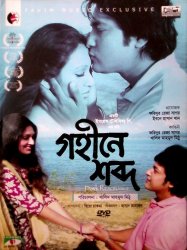
Dark Resonance (2010)
, 1h45Origine Bangladesh
Genres Drame, Guerre, Romance
Acteurs Mamnun Hasan Emon, Abul Hayat
Note72%





Nura is a street beggar. During 1971 liberation war in Bangladesh his one leg became useless and paralyzed. The Razakars, anti-liberation forces attacked him and struck him causing injury and making him a crippled man. But as a father he extraordinary. He begs in the street in rain and sunshine but he does so only to make his dream a reality-to educate his daughter Swapna in the university. She is a university student.
 Connexion
Connexion



